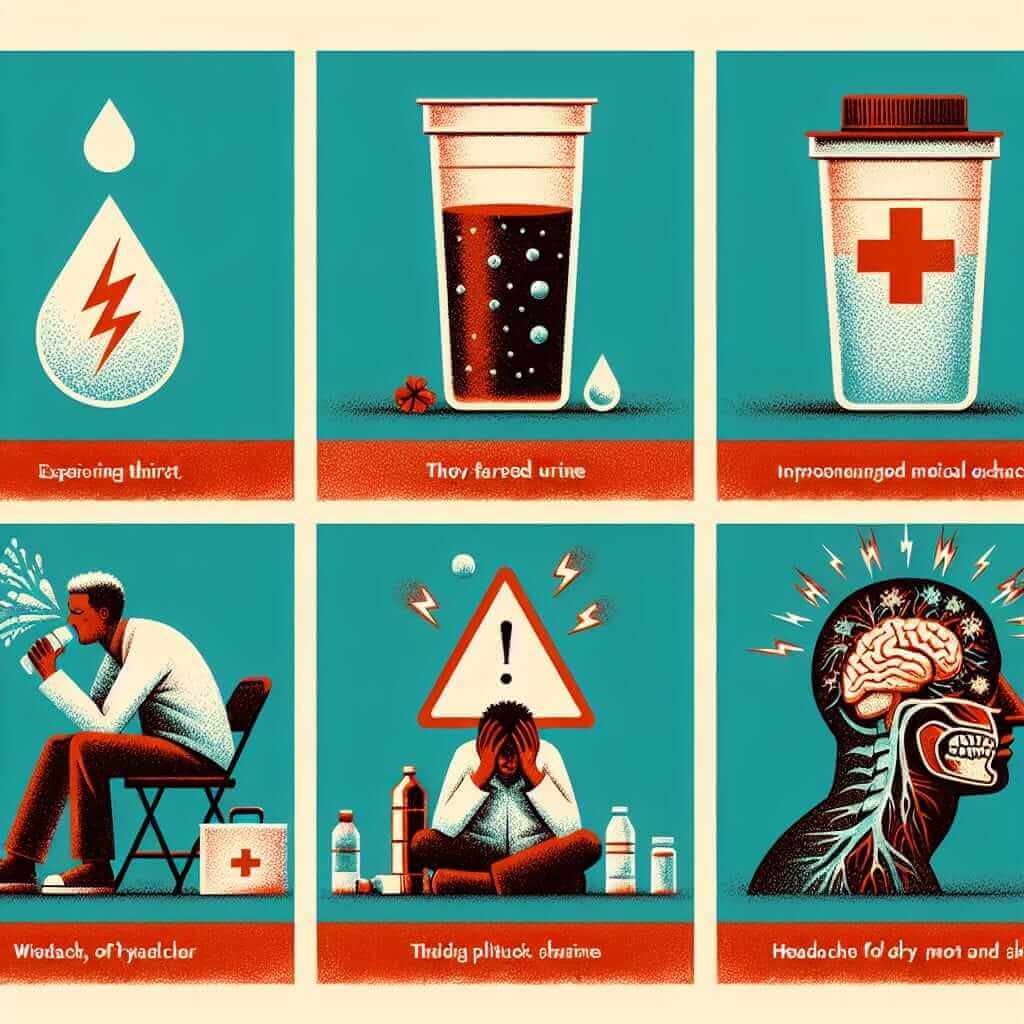The term “dehydration” (pronounced /ˌdiː.haɪˈdreɪ.ʃən/) is a common noun in the IELTS exam, often appearing in the Listening and Reading sections, particularly in contexts related to health, sports, and the environment.
Synonyms:
- Fluid deficiency: (noun) /ˈfluːɪd dɪˈfɪʃənsi/ – a lack of fluids in the body.
- Hypohydration: (noun) /ˌhaɪ.poʊ.haɪˈdreɪ.ʃən/ – a less common, more technical term for dehydration.
- Water loss: (noun) /ˈwɔː.tər lɒs/ – a general term referring to the reduction of water in the body.
Antonyms:
- Hydration: (noun) /haɪˈdreɪ.ʃən/ – the process of providing or obtaining sufficient water.
- Fluid balance: (noun) /ˈfluːɪd ˈbæl.əns/ – the state where the intake and output of fluids in the body are equal.
Example:
“Severe dehydration can lead to serious health complications, including heat stroke and even death.”
Deep Dive into “Dehydration”
Definition and Causes
Dehydration occurs when your body loses more fluids than you take in. This imbalance can happen due to various factors, such as:
- Inadequate fluid intake: Not drinking enough water, especially during hot weather or exercise.
- Illness: Conditions like diarrhea, vomiting, and fever can cause significant fluid loss.
- Strenuous activity: Heavy sweating during physical exertion can lead to dehydration if fluids aren’t replenished.
- Certain medications: Some medications, like diuretics, can increase urine output, potentially causing dehydration.
Symptoms and Effects
Recognizing the symptoms of dehydration is crucial:
- Thirst: This is your body’s initial signal that you need to drink.
- Dark urine: A sign that your body is trying to conserve water.
- Fatigue: Dehydration can make you feel tired and weak.
- Headache: A common symptom, often accompanied by dizziness.
- Dry mouth and skin: Noticeable dryness in your mouth and skin.
 Dehydration Symptoms
Dehydration Symptoms
Dehydration in IELTS
You’re likely to encounter “dehydration” and related vocabulary in various IELTS sections:
Listening: Listen for this term in sections discussing health advice, sports science, or environmental issues.
Reading: Texts about health, biology, or survival strategies might include this topic.
Writing: You might need to write about the importance of hydration in sports performance or the effects of dehydration on the body.
Speaking: During the speaking test, you could discuss personal experiences with dehydration, healthy habits, or the impact of climate change on water scarcity.
Using “Dehydration” in Your IELTS Responses
Writing Task 1
Scenario: The graph shows the number of hospital admissions due to dehydration during a heatwave.
Sample Sentence: “The graph clearly illustrates a sharp increase in hospital admissions for dehydration, coinciding with the onset of the extreme heatwave.”
Writing Task 2
Scenario: Discuss the importance of staying hydrated during physical activity.
Sample Sentence: “Maintaining adequate hydration is paramount during exercise, as even mild dehydration can significantly impair athletic performance and increase the risk of heat-related illnesses.”
Speaking Part 2
Cue Card: Describe a time when you had to deal with a health problem.
Sample Answer: “Last summer, I went hiking on a scorching day without packing enough water. I became severely dehydrated, experiencing dizziness and a pounding headache. It taught me a valuable lesson about the importance of staying hydrated, especially in hot weather.”
Collocations and Idioms
To enhance your language fluency and demonstrate a wider range of vocabulary, consider these collocations and idioms related to “dehydration”:
- Become dehydrated: “It’s easy to become dehydrated during strenuous workouts.”
- Suffer from dehydration: “Many elderly individuals suffer from dehydration, especially during the summer months.”
- Prevent dehydration: “Drinking plenty of fluids throughout the day is crucial to prevent dehydration.”
- Risk of dehydration: “Athletes face a higher risk of dehydration due to excessive sweating.”
- Severe dehydration: “Severe dehydration can be life-threatening and requires immediate medical attention.”
Conclusion
Mastering the vocabulary related to “dehydration” is essential for success in the IELTS exam. Understanding its causes, symptoms, and significance, along with using it accurately in various contexts, will enhance your ability to communicate effectively and achieve your desired score.
Remember to practice using this vocabulary in your writing and speaking, and pay close attention to how it is used in authentic English materials to strengthen your grasp of this important topic.


